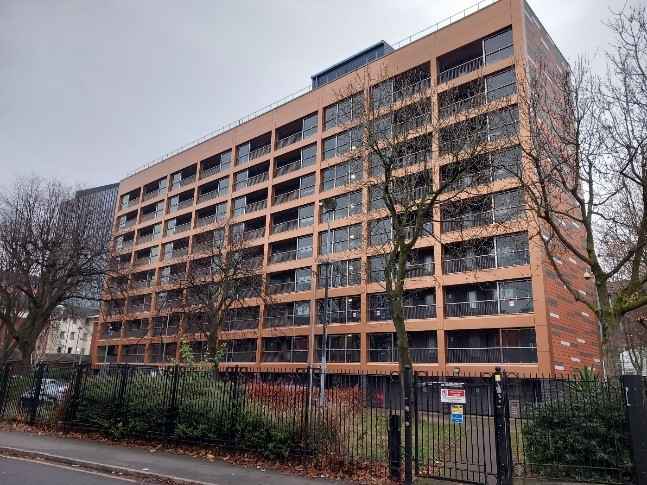Community Partnership Projects
Project 1
Mediated dialogue: tools and training for community cohesion

This project will provide resources and training in mediated dialogue for teachers, youth workers and other professionals to equip them to respond to polarisation and conflict in community settings.
It draws on a Mediated Dialogue framework and toolkit developed by Professor Hilary Pilkington and the Tim Parry Johnathan Ball Foundation (TPJBF). It can be used by teachers, youth workers and other practitioners and professionals in community safety and neighbourhood team roles, restorative youth or community practices, social services and youth offending teams. The toolkit and training will help practitioners tackle conflict and division through carefully facilitated conversations.
The mediated dialogue toolkit has been independently evaluated and used successfully with young people with polarised political positions. It has shown that, with careful facilitation, young people with strong negative perceptions of one another can engage constructively and have those perceptions shifted.
The SoSS community partnership funding will bring the toolkit to a wider audience and extend its use. TPJBF will run a two day training course for professionals and practitioners in using mediated dialogue and provide post-training support. Through this, it will also establish a network of practitioners from local authorities and the voluntary and community sector in Greater Manchester and the North West, who are trained and equipped to respond to rapidly emerging polarisation and conflict.
The project is a partnership between Professor Hilary Pilkington, from the department of Sociology at The University of Manchester and the Tim Parry Johnathan Ball Foundation (TPJBF). TPJBF creates safe spaces for difficult dialogue and non-formal learning programmes to enable young people and adults to actively prevent, resolve and respond to conflict in constructive ways. Hilary Pilkington is an expert in youth inclusion and exclusion and young people’s engagement in political extremism.
If you work with young people and would like more information about the training, the practitioner network or the toolkit, please contact Hilary Pilkington (hilary.pilkington@manchester.ac.uk) or Harriet Vickers (harriet.vickers@timjon.org.uk).
*Photo by Nicole Baster on Unsplash
Project 2
Developing high-rise Naturally Occurring Retirement Communities in Hopton Court, Hulme: A co-curation of creative social engagement

The SOSS Community Partnership Fund (CPF) is helping to strengthen existing relationships between tenants of Hopton Court, Hulme, and an interdisciplinary group of researchers from the Manchester Urban Ageing Research Group (MUARG, UoM).
The project centres on a co-curated social engagement programme in Hopton Court, a social housing tower block in Hulme (Greater Manchester) and clearly aligns with the University’s mission of Social Responsibility, by investing in and empowering a neighbouring local community that is experiencing different forms of deprivation and being impacted by the ongoing expansion of the university.
This programme of social engagement is borne out of a long history of co-production and campaigning work in Hopton Court. Hopton Hopefuls are a group of older tenants living in the block that have been lobbying for more support and advocating for change particularly around issues of ageing and inequality, and against the gentrification of their neighbourhood.
Working in tandem with other community groups in Hulme, their lobbying work has involved a variety of different formats, such as creative engagements including poetry and memory books (e.g. ‘Thirsty Scholar’ by Tina Cribbin/Anne Finnegan) as well as co-writing a play entitled ‘Can You Hear Me From Up Here’, performed at The Exchange Theatre in Manchester.
Tenants have also wrote more formal reports, of which MUARG have collaborated on. Tenants are now working closely with their Housing Provider, One Manchester, as well as researchers from MUARG, to co-create a NORC programme in the block, which is a North-American supportive housing initiative facilitating ageing in place that is novel to the UK. NORC programmes are resident-led and based on integrating a health care and social offer into existing accommodation where older people live.
This CPF will support the delivery of opportunities of widening engagement and participation of Hopton tenants, encouraging tenants to take a more active role in the block, in order to lay and strengthen the social foundation of co-developing a NORC programme. This in turn helps to address spatial injustices and exclusion, as well as health inequalities that are faced by social housing tenants. The content of the activities will be co-created over the course of the programme, centring on the aspirations and interests of the tenants.

Given the various ethnicities and nationalities living in the block, the programme will capitalise on food as a universal language across all cultures in order to widen and diversify participation in social activities.
The project promises to involve students, through translation support and also through creative outputs such as a film and a book centred around stories of food and memories, capitalising on the creative dissemination that those from Hopton Court have already engaged in.
MUARG will benefit from wider learning around creative engagement methods for overcoming barriers that exist in communities experiencing different forms of deprivation and exclusion, as well as deepen knowledge of co-production/collaborative methods, which are a key ethos MUARG’s research.
Ultimately, through helping to address spatial exclusion and social isolation, and laying the foundation for a NORC programme that is enabling older social housing tenants to age in place, the CPF is helping to address the precarity that those living at Hopton Court face.
At the same time, the fund is helping to amplify the collective voice tenants have already established amidst a rapidly changing neighbourhood of which the University is a driving force.
